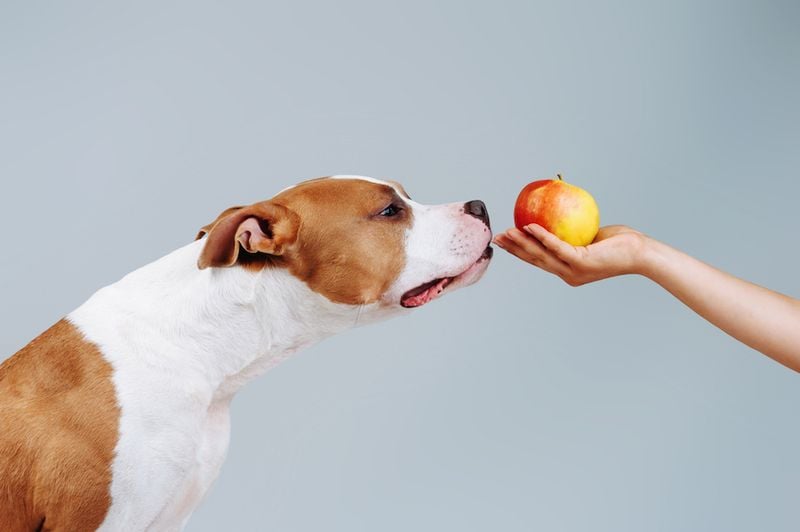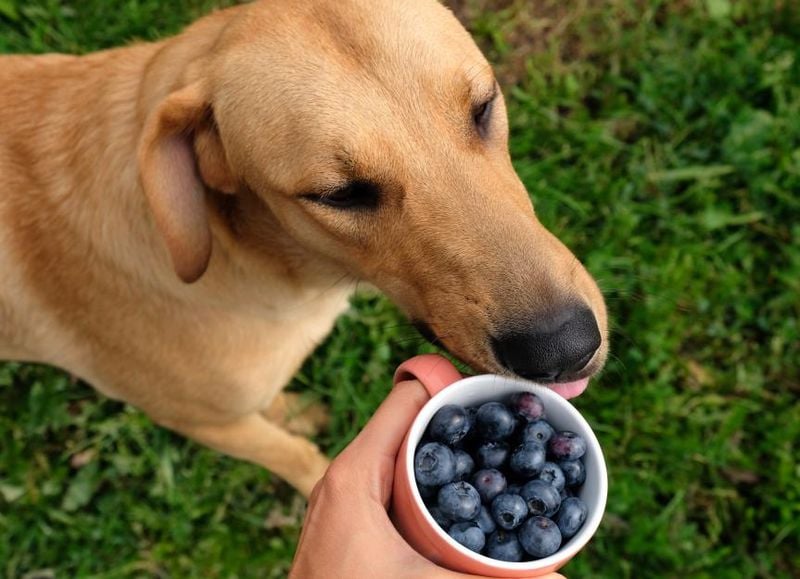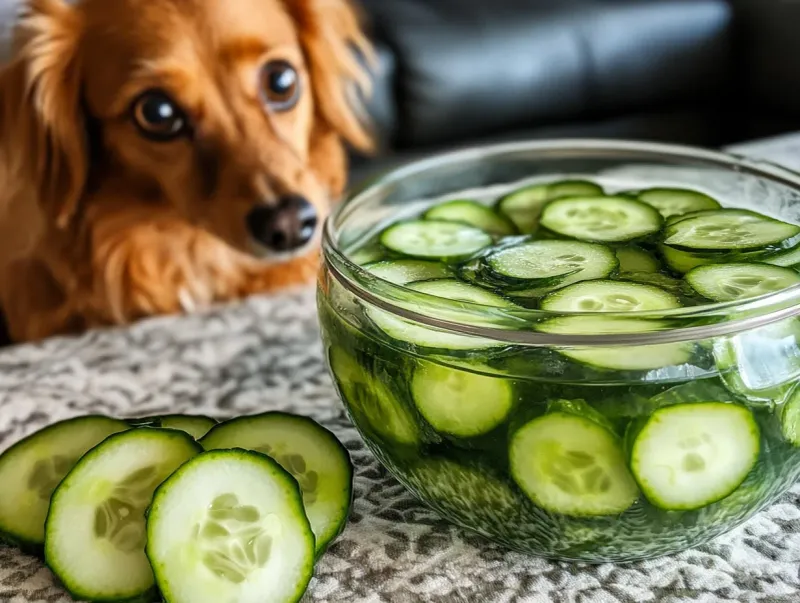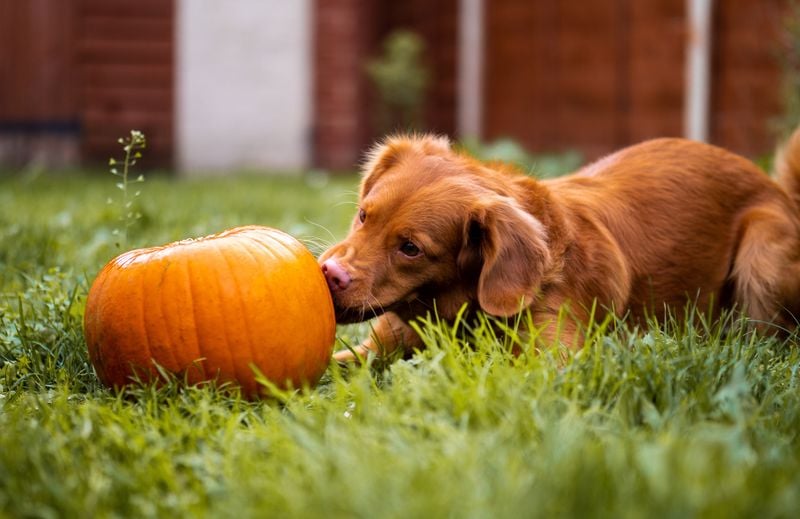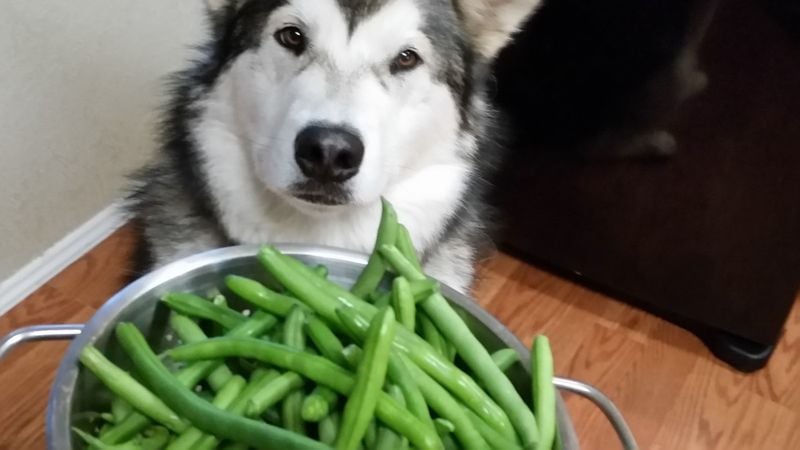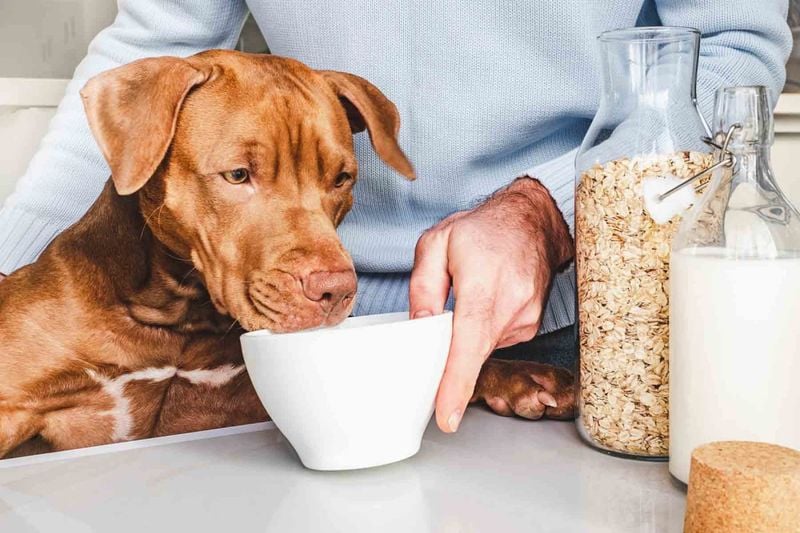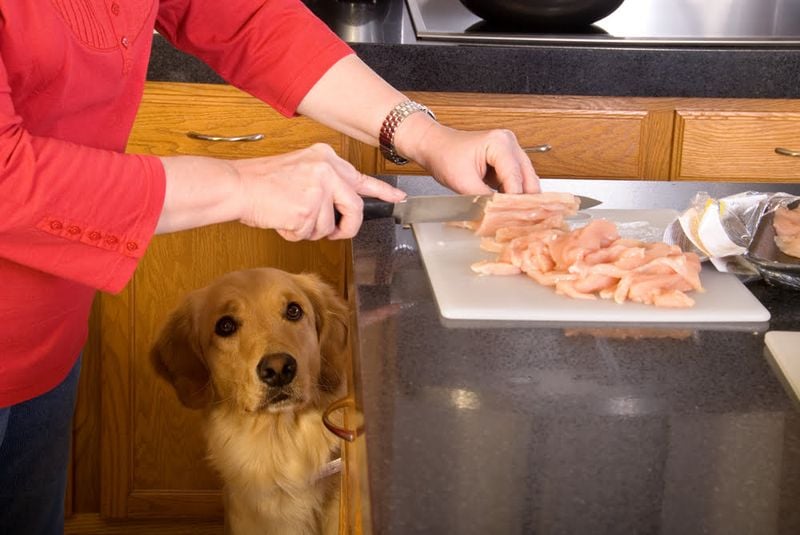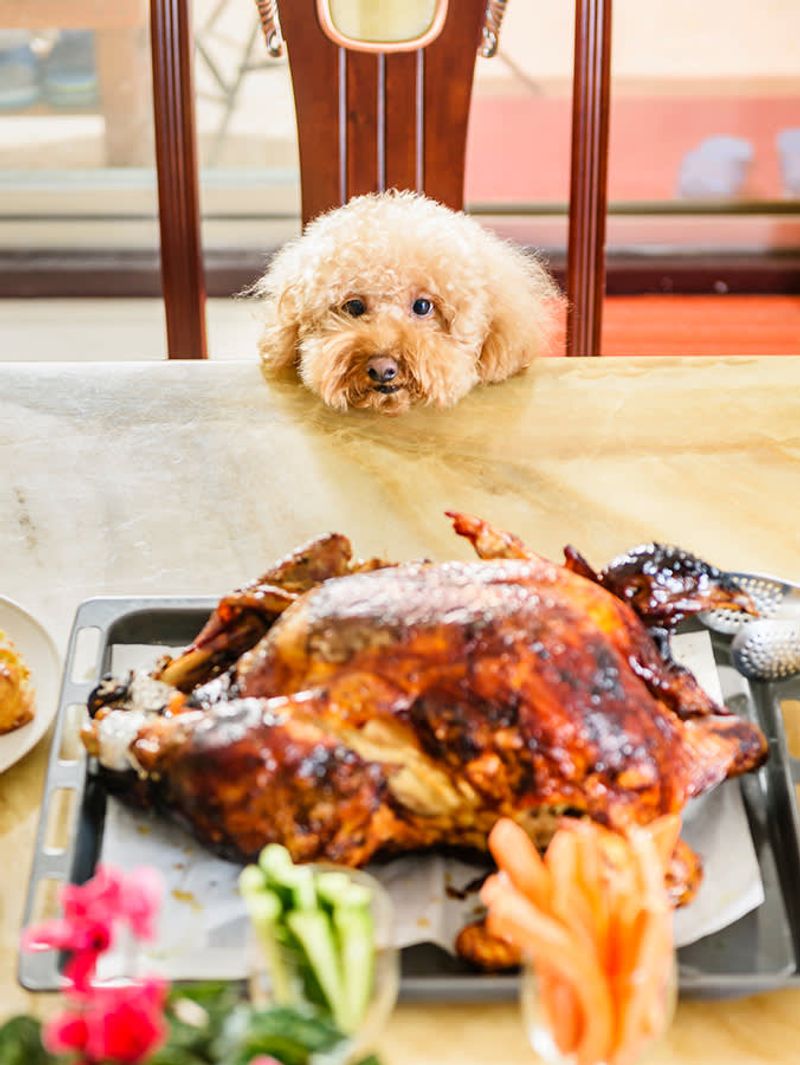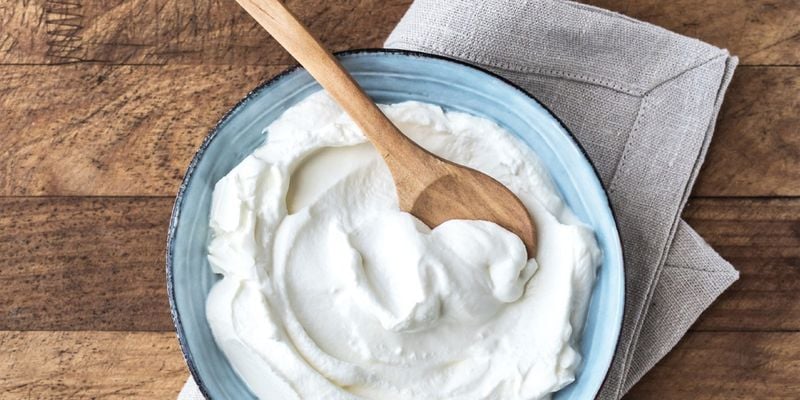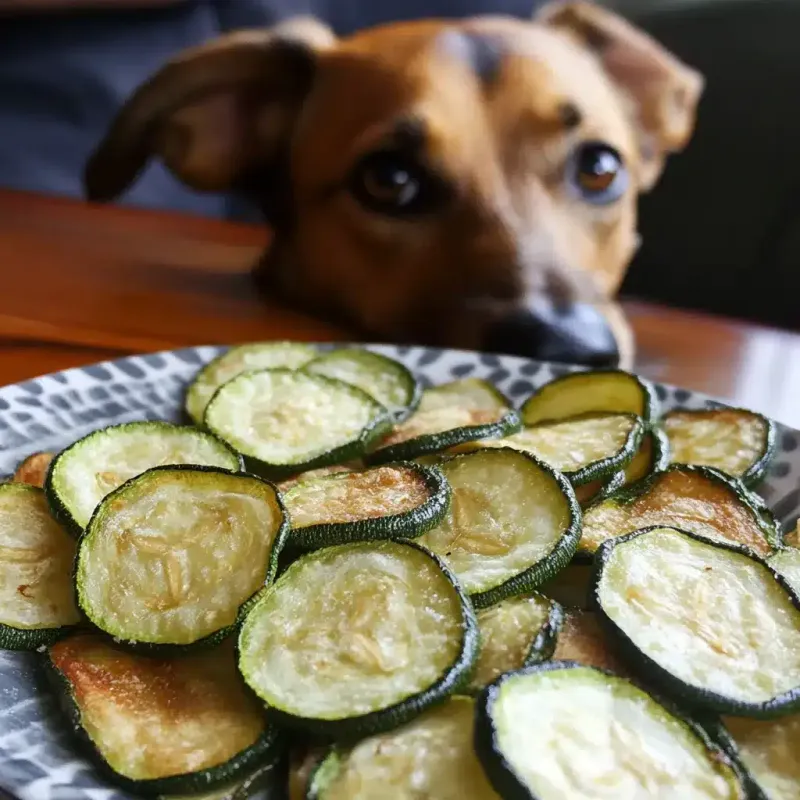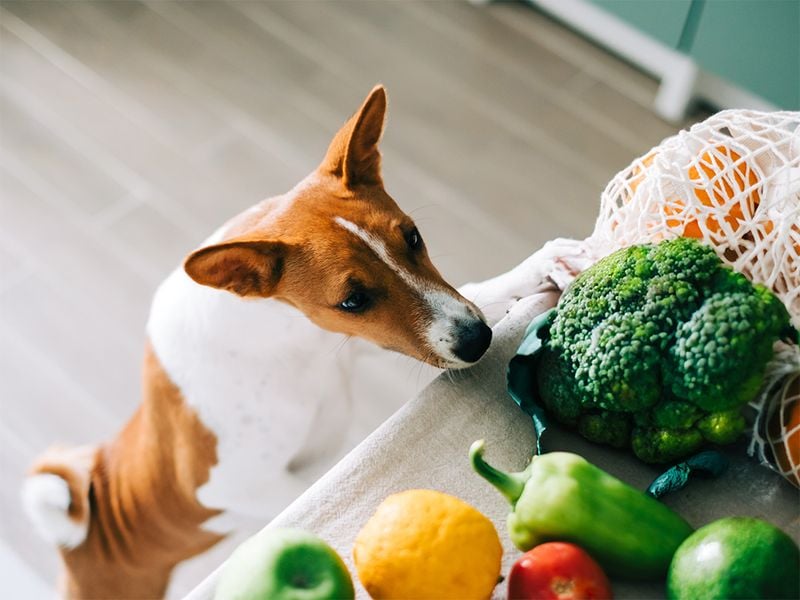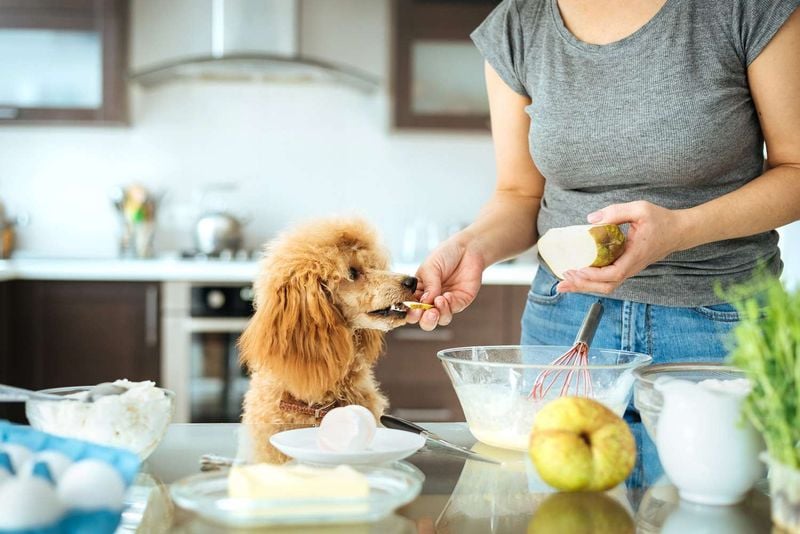22 Human Foods You Can Actually Share with Your Dog Without Worry
You’re chopping up a snack in the kitchen and your dog is giving you that look—the one that makes you question everything you know about safe foods.
We all want to treat our pups, but with so many warnings out there, it’s hard to know what’s okay to share and what could send you racing to the vet.
The good news? Not all human food is off-limits. In fact, some of it is downright healthy for dogs when given in moderation.
From fruits and veggies to lean proteins and dairy, there’s a surprising range of people foods your pup can safely enjoy. Here’s a list of 22 completely dog-safe human foods that you can share without worry—and with tails wagging in approval.
1. Carrots
Carrots are the ultimate guilt-free dog snack. Crunchy, sweet, and packed with vitamin A, they’re fantastic for eye health and immune support.
Plus, the texture can help scrape plaque off your dog’s teeth, acting as a natural toothbrush during snack time.
Whether raw or cooked, carrots are low in calories, making them a perfect option for pups watching their waistlines. Chop them into bite-sized pieces for training treats or toss your dog a whole one to gnaw on for fun.
Just be cautious with baby carrots, as their size can be a choking hazard for smaller breeds. Cut them lengthwise if needed, and always serve plain—no butter, salt, or seasonings needed for your four-legged friend to love them.
2. Apples (no seeds)
Apples offer a sweet, crunchy bite that many dogs adore. They’re full of fiber to support digestion and contain vitamin C and antioxidants that benefit your dog’s immune system and aging cells.
Just make sure to remove the core and seeds, as apple seeds contain cyanide, which can be harmful in large quantities. The peel is safe to eat, though you can remove it for easier digestion if your dog has a sensitive tummy.
Serve apple slices fresh, frozen, or diced into kibble as a healthy topper. Avoid apple-flavored treats with added sugar or artificial ingredients—plain, raw apple is all your pup needs to enjoy this naturally sweet snack.
3. Blueberries
These tiny berries pack a huge punch. Blueberries are rich in antioxidants that help fight free radicals and reduce inflammation—great for dogs as they age. They’re also loaded with fiber and vitamin C, all wrapped in a bite-sized, low-calorie treat.
They’re ideal for training rewards or simply tossing into your pup’s bowl for an extra nutritional boost. Fresh or frozen, they’re safe and easy to portion. Some dogs even love the cool crunch of frozen blueberries on a hot day.
Just be mindful not to overdo it—too much of a good thing can cause tummy trouble. Stick to a small handful and watch your pup enjoy this naturally sweet, superfood snack.
4. Watermelon (seedless)
Watermelon is a summertime favorite—and dogs love it just as much as we do. This juicy fruit is 92% water, making it incredibly hydrating on hot days. It also offers vitamins A, B6, and C, with the bonus of being low in calories.
Make sure to remove all seeds and avoid the rind, which can be tough for dogs to digest and may cause an upset stomach. Cubed, balled, or sliced, watermelon is a safe and refreshing way to keep your pup cool.
Pop a few pieces in the freezer for an icy treat or blend it into a simple dog-safe smoothie. Just like any fruit, moderation is key, but your dog will definitely be a fan.
5. Cucumber
If your dog’s looking to shed a few pounds—or just stay healthy—cucumbers are a dream snack. Low in calories and fat, they’re hydrating and packed with vitamins like K and C, plus a healthy dose of magnesium and potassium.
Crisp and crunchy, cucumbers make a satisfying chew and can even freshen your dog’s breath. Slice them thin for training rewards or offer a stick to chomp during the heat of summer.
Just be sure to serve them plain—skip the dressing, salt, or dip. And while most dogs handle cucumbers well, introduce them gradually to avoid any digestive surprises.
6. Cooked Sweet Potatoes
Sweet potatoes are not just delicious—they’re also a dog-friendly superfood. Rich in fiber, they support digestive health, and their beta-carotene helps with vision, immune function, and healthy skin.
Cooked and mashed sweet potatoes make a perfect topper for kibble, or you can slice and bake them into chewy chips for a DIY treat. Always serve them plain, with no added butter, spices, or sugars.
Avoid raw sweet potato, as it can be harder for dogs to digest. And remember, moderation matters—even something this nutritious should be a treat, not a full meal.
7. Pumpkin (plain, canned or cooked)
Pumpkin is a dog’s digestive best friend. Whether your pup’s dealing with diarrhea or constipation, a spoonful of plain pumpkin often does the trick thanks to its fiber content.
It’s also loaded with vitamins like A, C, and E, plus potassium and iron. Canned pure pumpkin is easiest—just make sure it’s plain and not the pie filling loaded with sugar and spices.
Mix it into your dog’s meal or freeze it in silicone molds for a chilly treat. A little goes a long way, and your pup will love both the flavor and the belly-soothing benefits.
8. Green Beans (unsalted)
Green beans are perfect for pups who love to snack but need to watch their weight. Low in calories and high in fiber, they help dogs feel full without packing on pounds.
Serve them steamed, boiled, or raw—as long as they’re plain. Avoid canned green beans with added salt or seasoning, and skip the buttery casseroles.
Cut them into manageable pieces for smaller dogs, or offer whole beans to larger breeds. Many dogs love the crunch and will happily munch on them as a satisfying substitute for store-bought treats.
9. Plain Rice
When your dog’s tummy is upset, plain white rice is one of the first things vets recommend. It’s easy to digest, low in fiber, and helps bind stool, making it ideal for short-term feeding during bouts of diarrhea.
Brown rice is also safe and contains more fiber, but it takes longer to cook and can be harder to digest.
Just keep it plain—no butter, salt, or spices—and serve it alone or with a bit of plain chicken. It’s not a long-term diet, but rice is an excellent short-term tool for sensitive stomachs.
10. Oatmeal (unsweetened)
Oatmeal is a fantastic alternative for dogs who are sensitive to wheat. Rich in soluble fiber, it supports healthy digestion and can also help regulate blood sugar levels.
It’s best to serve cooked oatmeal with water—never milk—and without added sugar, salt, or flavorings. Plain and simple is the safest bet.
You can mix a spoonful into your dog’s food or bake it into homemade dog treats. A small portion goes a long way, especially for smaller pups, so serve it warm and let it cool before offering.
11. Plain, Cooked Chicken
Plain chicken is one of the most reliable protein sources for dogs. It’s lean, gentle on the stomach, and packed with amino acids that support muscle health and energy. Many commercial dog foods use chicken as their base for good reason.
Always serve it cooked and unseasoned—boiled or baked works best. Skip the salt, garlic, onion, or spices, as those can be toxic to dogs.
You can shred it over kibble, mix it with plain rice during digestive upsets, or use chunks as a high-value training treat. Just remember to remove bones and skin before serving.
12. Cooked Turkey (no bones or skin)
Turkey offers the same lean protein benefits as chicken, but with a richer flavor that dogs often find irresistible. It’s low in fat and a good source of B vitamins, selenium, and zinc.
Only serve it cooked and plain—no gravy, stuffing, or skin, as those extras can contain onions, garlic, or too much fat.
Always double-check for bones, which can splinter and pose a serious choking hazard. Turkey makes an excellent kibble topper or standalone snack when you need something nutritious and satisfying for your dog.
13. Scrambled Eggs (no oil or seasoning)
Eggs are protein-packed and loaded with nutrients like biotin, selenium, and riboflavin, all of which contribute to healthy skin and coats. Dogs love the taste, and it’s easy to prepare.
Scramble them in a nonstick pan with no oil, butter, or seasonings—just plain eggs. Boiled or poached is fine too, as long as they’re cooked through to avoid the risk of salmonella.
Serve them on their own or mix into meals for a tasty protein boost. Just limit eggs to a few times a week to avoid unnecessary calorie overload.
14. Peanut Butter (xylitol-free)
Peanut butter is one of the most beloved dog treats around—and it’s easy to see why. It’s creamy, delicious, and full of healthy fats and protein. It’s also a great source of niacin and vitamin B.
Always check the label: make sure it’s free from xylitol, a sugar substitute that’s highly toxic to dogs. Opt for natural peanut butter with no added salt, sugar, or oils.
Use it to fill puzzle toys, hide pills, or smear on a lick mat for enrichment. Just stick to small amounts—it’s calorie-dense and can lead to weight gain if overfed.
15. Cheese (in moderation)
Cheese can be a great high-value treat, especially during training sessions. Most dogs go wild for its rich flavor and soft texture. It also provides calcium, protein, and vitamin B12.
However, many dogs are sensitive to lactose, so it’s best given in small quantities. Hard cheeses like cheddar or mozzarella tend to be easier on digestion than soft or processed ones.
Always avoid flavored cheeses that contain garlic or onion. If your dog handles dairy well, cheese can be a tasty and rewarding snack—but think of it more as a treat than a daily staple.
16. Plain Greek Yogurt
Greek yogurt is a probiotic powerhouse that can help balance your dog’s gut health. It’s thicker and higher in protein than regular yogurt and contains fewer sugars and lactose, making it easier to digest.
Make sure you choose plain, unsweetened varieties—no added fruits, flavors, or artificial sweeteners like xylitol.
You can spoon a little over your dog’s food or serve it straight as a cool, creamy treat. It’s also great for freezing into little bites for enrichment. Just introduce it slowly, especially if your dog hasn’t had dairy before.
17. Salmon (cooked, boneless)
Salmon is rich in omega-3 fatty acids, which do wonders for a dog’s skin, coat, joints, and even brain health. It’s an excellent protein option that’s both delicious and beneficial.
Serve it fully cooked and completely boneless. Raw salmon can carry parasites, especially in certain regions, and bones can be dangerous. Steamed, grilled, or baked are your safest prep methods.
Mix a few flakes into your dog’s dinner or use chunks as a special treat. If your dog has a dull coat or itchy skin, salmon can be a natural way to offer relief.
18. Sardines (packed in water, no salt)
Tiny but mighty, sardines are loaded with omega-3s, calcium, and vitamin D. Since they’re small and soft-boned, they’re safe for dogs to eat whole—bones included.
Look for sardines packed in water without added salt or oil. Avoid those in mustard, tomato sauce, or anything spicy.
Just one or two sardines can give your pup a nutrient boost, support joint and brain health, and promote a shinier coat. They’re also a hit with picky eaters. Try adding them to meals or freezing them for a cool fishy snack.
19. Zucchini
Zucchini is low in calories but rich in antioxidants, vitamins B6 and C, potassium, and fiber. It’s a great snack for dogs who need to slim down or just want a crunchy, healthy treat.
You can serve it raw, steamed, or roasted—just make sure it’s plain and cut into dog-safe pieces. Avoid oil and seasonings, and stick to smaller portions to avoid digestive upset.
Zucchini is also easy to blend into homemade dog treats or mix into their meals. It adds texture and nutrients without bulking up their calorie count.
20. Broccoli (in small amounts)
Broccoli is packed with vitamins C and K, fiber, and antioxidants that support immune function and cell health. Most dogs enjoy the crunch of raw florets or the softness of lightly steamed ones.
However, it also contains isothiocyanates, which can cause gas or stomach discomfort in some dogs if too much is eaten. That’s why it’s best served in small amounts and as an occasional treat.
Stick to plain, unseasoned pieces—no butter, cheese sauce, or garlic. Broccoli stems are fine too, as long as they’re chopped to prevent choking in smaller dogs.
21. Pears (no seeds or core)
Pears are a sweet, juicy fruit that many dogs enjoy. They contain fiber, vitamin C, and copper, making them a nutritious snack when served properly.
Always remove the seeds and core, as they contain trace amounts of cyanide and pose a choking hazard. The skin is safe and adds fiber, but you can peel it for sensitive stomachs.
Chop pears into bite-sized chunks and serve raw or lightly steamed. Avoid canned pears, which are often packed in syrup. A few pieces can add variety and sweetness to your dog’s diet without guilt.
22. Strawberries
Strawberries are a delicious, antioxidant-rich fruit that dogs can safely enjoy in moderation. They contain vitamin C, fiber, and enzymes that may even help whiten your pup’s teeth naturally.
Serve them fresh and chopped to prevent choking—especially for small dogs. Frozen strawberries also make a fun, refreshing treat on warm days.
Avoid anything processed or sweetened, like strawberry yogurt or jam. And while dogs usually love the sweetness, too many strawberries can cause upset stomachs. A few berries here and there are the perfect balance between tasty and healthy.


